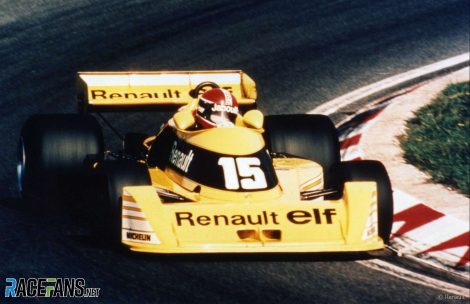Renault has confirmed it will not build power units for the new regulations Formula 1 is introducing in 2026.
Alpine, its works F1 team, is therefore in need of an engine supplier for the 2026 season. The team is believed to be in discussions with Mercedes to obtain power units as a customer.
Renault’s F1 engine facility at Viry-Chatillon will be used to develop other technologies for the automotive group. This new engineer centre, to be known as Hypertech Alpine, will begin later this year, and work on multiple projects.
These will include a forthcoming Alpine supercar, research and development of electric motors and battery technologies, work on continuing motorsport programmes including WEC and the creation of “an F1 monitoring unit to master technical developments in this industry.”
The team has previously insisted the changes at Viry-Chatillon will not lead to any redundancies. It reaffirmed that position in today’s announcement.
Alpine CEO Philippe Krief called the change “a turning point in the history of the Viry-Châtillon site” and insisted “racing DNA remains a cornerstone of the brand.”
Renault has participated in F1 as an engine builder for much of the last 50 years. The engine programme’s future has been the subject of rumours for months, and workers at Viry-Chatillon lobbied the company unsuccessfully not to go through with its plans to scale back its participation in F1.
Advert | Become a RaceFans supporter and
However the manufacturer has struggled to compete against rivals Mercedes, Ferrari and Honda (now Honda RBPT) since the current V6 hybrid turbo power unit regulations were introduced in 2014. The current power unit specifications were frozen in 2022, with the agreement of teams, which Alpine says has left them at a disadvantage to their rivals.
Renault engines in Formula 1

Renault arrived in F1 during the 1977 season with a pioneering 1.5-litre turbocharged engine, at a time when all its rivals used normally aspirated motors of twice the capacity. However Renault’s bold thinking paid off and within five years turbo-powered F1 cars were winning championships.
It left F1, having failed to win a championship, after the 1985 season, though it remained for a further year as an engine supplier. Williams enticed it back for 1989, by which time turbos were banned, and their V10 engines won almost every title going between 1992 and 1997, when it withdrew again.
In 2002 Renault returned as a full constructor, rebranding the Benetton team, and within four years had scored double back-to-back wins. But it pulled out again in the wake of the Crashgate controversy in 2009.
Renault remained as an engine supplier to Red Bull and together they swept all four championships at the end of the V8 era. However Red Bull were frustrated by Renault’s failure to produce a competitive engine when the hybrid power units were introduced, and dropped them for Honda in 2019.
Miss nothing from RaceFans
Get a daily email with all our latest stories – and nothing else. No marketing, no ads. Sign up here:
Advert | Become a RaceFans supporter and
Formula 1
Browse all Formula 1 articles















